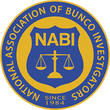Fake unemployment websites
The Department of Justice has received reports that fraudsters are creating websites mimicking unemployment benefit websites, including state workforce agency (SWA) websites, for the purpose of unlawfully capturing consumers’ personal information.
To lure consumers to these fake websites, fraudsters send spam text messages and emails purporting to be from an SWA and containing a link. The fake websites are designed to trick consumers into thinking they are applying for unemployment benefits and disclosing personally identifiable information and other sensitive data. That information can then be used by fraudsters to commit identity theft.
Unless from a known and verified source, consumers should never click on links in text messages or emails claiming to be from an SWA offering the opportunity to apply for unemployment insurance benefits. Instead, anyone needing to apply for unemployment benefits should go to an official SWA website, a list of which can be found at THIS LINK.
Schemes that use links embedded in unsolicited text messages and emails in attempts to obtain personally identifiable information are commonly referred to as phishing schemes. Phishing messages may look like they come from government agencies, financial intuitions, shipping companies, and social media companies, among many others. Carefully examine any message purporting to be from a company and do not click on a link in an unsolicited email or text message. Remember that companies generally do not contact you to ask for your username or password. When in doubt, contact the entity purportedly sending you the message, but do not rely on any contact information in the potentially fraudulent message.
If you receive a text message or email claiming to be from an SWA and containing a link or other contact information, please report the communication to the National Center for Disaster Fraud (NCDF) by calling 866-720-5721 or using the NCDF Web Complaint Form found on this section of the Justice Department website.
A good article on how to tell if a website is fake can be found HERE.
https://www.kttn.com/justice-department-is-warning-about-fake-unemployment-benefit-websites/
To lure consumers to these fake websites, fraudsters send spam text messages and emails purporting to be from an SWA and containing a link. The fake websites are designed to trick consumers into thinking they are applying for unemployment benefits and disclosing personally identifiable information and other sensitive data. That information can then be used by fraudsters to commit identity theft.
Unless from a known and verified source, consumers should never click on links in text messages or emails claiming to be from an SWA offering the opportunity to apply for unemployment insurance benefits. Instead, anyone needing to apply for unemployment benefits should go to an official SWA website, a list of which can be found at THIS LINK.
Schemes that use links embedded in unsolicited text messages and emails in attempts to obtain personally identifiable information are commonly referred to as phishing schemes. Phishing messages may look like they come from government agencies, financial intuitions, shipping companies, and social media companies, among many others. Carefully examine any message purporting to be from a company and do not click on a link in an unsolicited email or text message. Remember that companies generally do not contact you to ask for your username or password. When in doubt, contact the entity purportedly sending you the message, but do not rely on any contact information in the potentially fraudulent message.
If you receive a text message or email claiming to be from an SWA and containing a link or other contact information, please report the communication to the National Center for Disaster Fraud (NCDF) by calling 866-720-5721 or using the NCDF Web Complaint Form found on this section of the Justice Department website.
A good article on how to tell if a website is fake can be found HERE.
https://www.kttn.com/justice-department-is-warning-about-fake-unemployment-benefit-websites/
